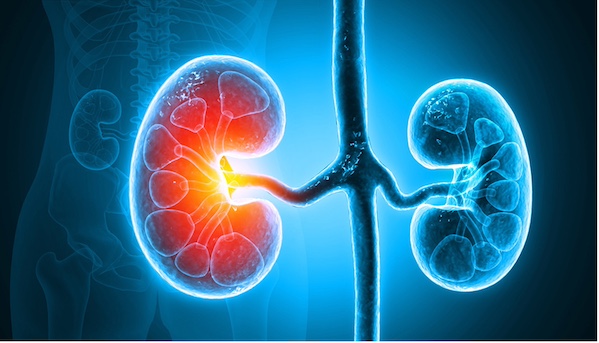Accurate Blood Markers for Identifying AKI Could Eliminate Need for Invasive Kidney Biopsies
December 22, 2023
Source: drugdu
 669
669

Acute Kidney Injury (AKI) is a condition characterized by intense inflammation, leading to sudden kidney function loss. AKI affects an estimated 15% to 20% of hospitalized patients, increasing their risk of in-hospital death and possibly leading to chronic kidney disease requiring dialysis or transplant. Clinicians have long sought markers to detect AKI without resorting to invasive kidney biopsies. Now, researchers have used cells from kidney biopsies to make progress in the search for more accurate and easier-to-obtain markers that can predict, manage, and assess the treatment of AKI.
This new study by investigators at Johns Hopkins University (Baltimore, MD, USA) focused on noninvasive assessments of what is termed maladaptive proximal tubule (PT) repair, a process that occurs in response to AKI and is marked by excessive inflammation. This PT maladaptation process offers an opportunity to identify noninvasive markers in blood or urine that could greatly aid in predicting AKI, managing treatment, and assessing the condition more safely. The research utilized single-nucleus ribonucleic acid (RNA) sequencing to analyze 120,985 nuclei from kidney biopsy samples from 17 AKI patients and seven healthy individuals. This approach was crucial for developing PT maladaptation markers and involved analyzing plasma proteome in patients undergoing cardiac surgery and marathon runners potentially affected by exercise-related AKI.
The study successfully identified the presence of maladaptive PT cells in AKI patients and identified six different protein markers. These markers included an increase in transforming growth factor–β2 (TGFB2), collagen type XXIII-α1 (COL23A1), and X-linked neuroligin 4 (NLGN4X), along with a decrease in plasminogen (PLG), ectonucleotide pyrophosphatase/phosphodiesterase 6 (ENPP6), and protein C (PROC). The researchers highlight that this panel of protein markers functions like a “liquid biopsy”, offering a significant aid in therapeutic development and providing clinicians with valuable tools for managing AKI, particularly when a biopsy is not feasible.
“Patients with AKI are critically ill, frequently in the ICU, and performing kidney biopsies is not feasible due to safety considerations. There is an urgent need to identify tissue signatures in the blood or urine that can inform us about how kidneys are healing,” said, Chirag Parikh, MD, Ph.D., director of the division of nephrology at Johns Hopkins Medicine. “The newer tools available to interrogate the genetic messages in the kidney biopsy tissue and find the corresponding products (proteins) in the blood enables us to track the condition of the kidney during the course of AKI.”
Source:
https://www.labmedica.com/molecular-diagnostics/articles/294799659/accurate-blood-markers-for-identifying-aki-could-eliminate-need-for-invasive-kidney-biopsies.html
Read more on
- Eli Lilly wins another victory! Regcizosumab submits its marketing application in China March 5, 2026
- Henlius’s potential best-in-class small molecule drug receives its first clinical trial approval March 5, 2026
- New anti-aging drug approved for clinical trials March 5, 2026
- First in the world and first in China, Yahong Pharmaceutical’s non-invasive treatment for cervical precancerous lesions, Cervita, has been approved March 5, 2026
- Its investee company’s PA3-17 injection has received clinical approval for a new indication, expanding the applicable population to children and adolescents March 5, 2026
your submission has already been received.
OK
Subscribe
Please enter a valid Email address!
Submit
The most relevant industry news & insight will be sent to you every two weeks.



